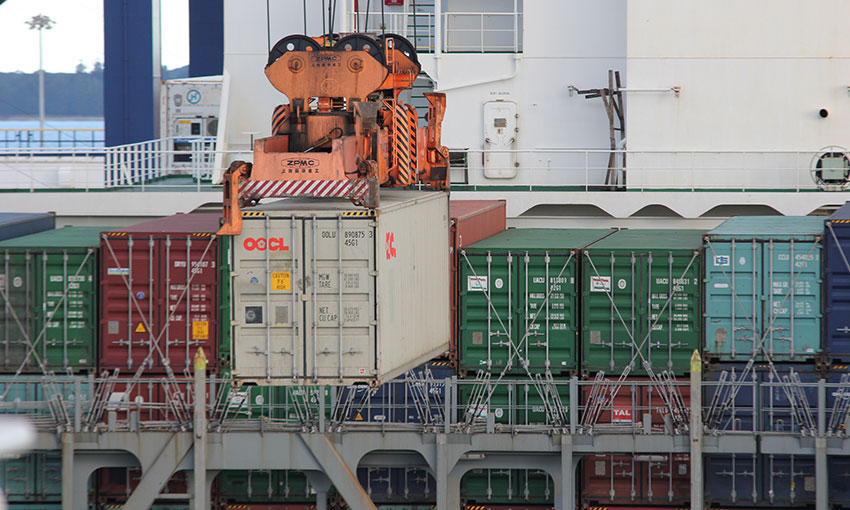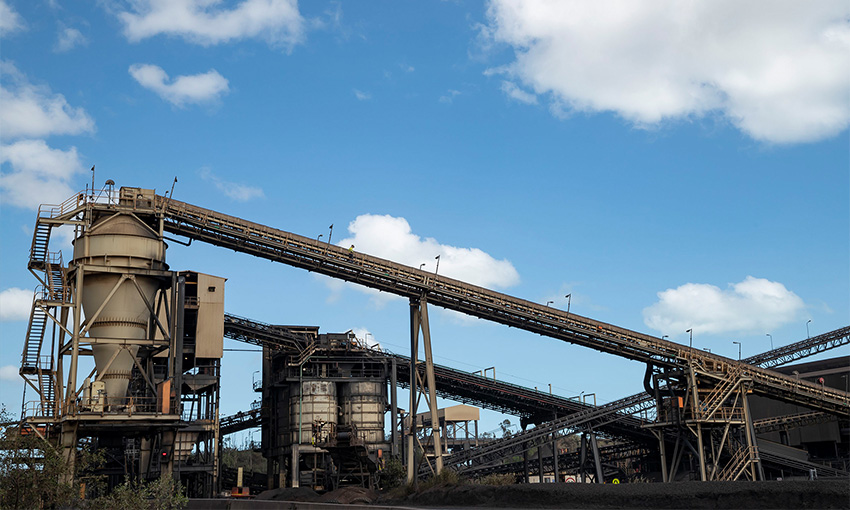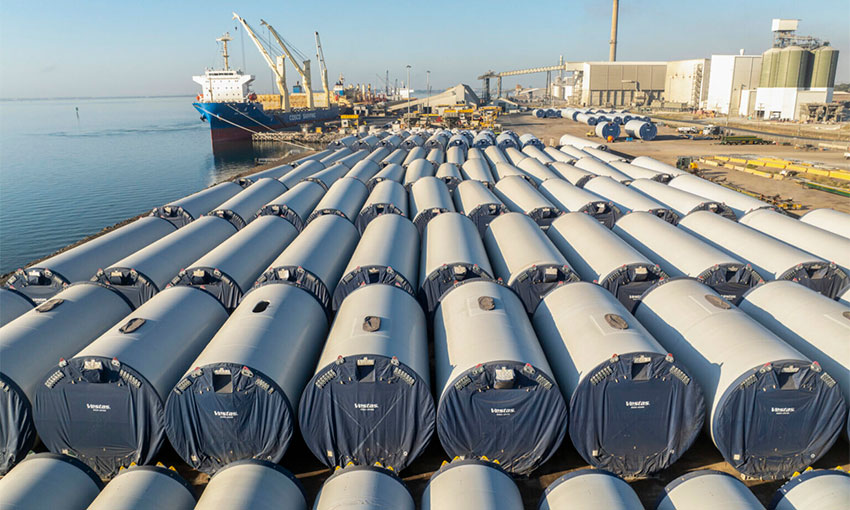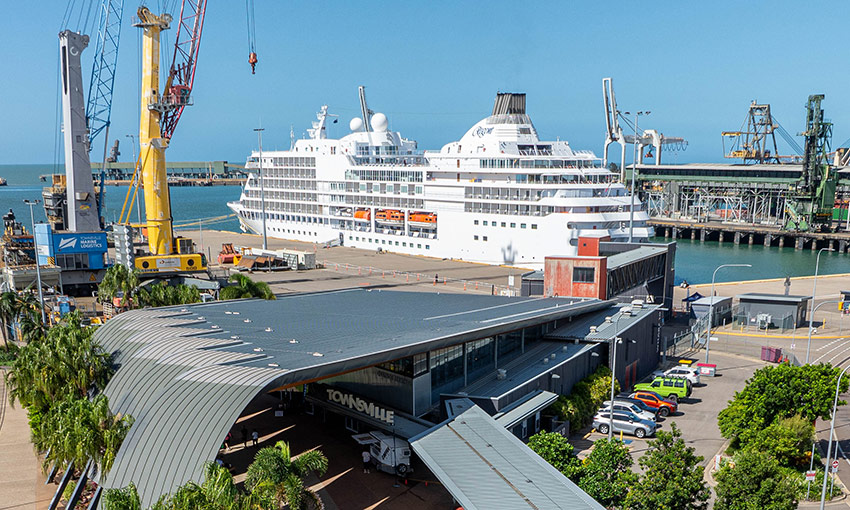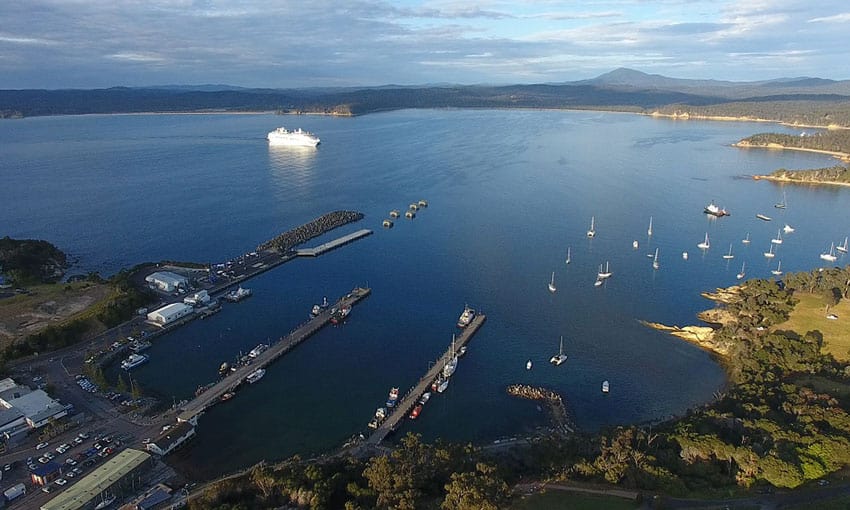PRIME Minister Scott Morrison yesterday announced a Productivity Commission inquiry into the efficiency of the Australian maritime logistics system.
During an address to the Australian Industry Group on Tuesday, Mr Morrison said the Treasurer would soon be releasing the terms of reference for the inquiry, which is expected to be complete by mid-2022.
During his speech, Mr Morrison pointed to the ACCC’s Container Stevedoring Monitoring Report 2020-21 and said the government is examining broader issues with the “relative productivity of Australian ports”.
“Ports are the gateway for our economy. Inefficient ports are a tax on all of us,” he said.
The Prime Minister said the government was helping to improve port productivity through infrastructure projects and taking on regulatory inefficiencies at the border through the Simplified Trade System.
“It’s clear, however, that productivity challenges remain in Australia’s maritime logistics system. These relate to competition, industrial relations, infrastructure constraints and technology uptake,” he said.
The Prime Minister said his government is keeping a close watch on the potential for industrial action to disrupt economic activity. He noted that industrial action at Patrick is on hold for another week, until 10 December.
“We encourage the parties to this dispute to negotiate in good faith and to resolve their issues to get this sorted,” he said.
“But at the same time, I want to assure you that our government will take action, if needed, to protect the Australian economy from serious harm.”
A statement from the Maritime Union said the Prime Minister’s statement was a “calculated, political attack” that was “timed to cause maximum anxiety and fear within the community”.
“The Maritime Union will continue to negotiate in good faith with employers on the waterfront and advocate for good pay, job security and safety in the workplace for our members, but what we don’t need is Scott Morrison sticking his head in and trying to create conflict on the waterfront in the lead up to Christmas as a distraction from his failure and lies,” the MUA said.
The view from the ports
Ports Australia CEO Michael Gallacher said the ports organisation continues to support and welcome measures by government looking to assist industry to further develop the efficiency of Australia’s ports and maritime capacity.
“The fact that the federal government has called for such an inquiry highlights how captive our nation is to the dramatic pressures on the international supply chain and the corollary impacts this has had on our domestic logistics capabilities,” Mr Gallacher said.
“Those impacts include but are not limited to the unpredictable and sporadic fluctuation of international supply and demand for goods and increased market pressure on shipping rates, significant delays at major international ports with Port of Los Angeles and Port of Shanghai being the most recent examples, and major world events such as the Suez Canal blockage.
Mr Gallacher pointed out that this upcoming review follows an earlier examination by the Productivity Commission earlier this year on the vulnerability of commodities.
“[When the review was announced], Ports Australia called on the Productivity Commission to use their Vulnerable Supply Chains report to importantly analyse the challenges facing our domestic supply chain, yet the final report focused more solely on the vulnerabilities of individual commodities,” Mr Gallacher said.
“This latest announced inquiry will, however, work towards developing a greater understanding by business, importers and exporters and the wider community on how reliant our nation is on global supply chains and identify any possible opportunities to improve pressures being experienced domestically.
“We now urge the federal government and the Productivity Commission to engage with industry from the outset to drive a strong agenda for next year’s report so together, we can build on the efficiency of our industry which has strongly upheld our resilience to the global challenges of recent times.”
Shipping Australia weighs in
Meanwhile, Shipping Australia CEO Melwyn Noronha welcomed the Prime Minister’s announcement and said there is clearly a problem with industrial relations on the waterfront.
“Australia is plagued by ongoing protected industrial action. Each day, about $552.9 million worth of containerised goods, about 16,000 twenty-foot boxes worth, cross the wharves,” he said.
“Economists reckon that industrial disruption at our ports can lead to a direct loss of about $22.7 million a day to the Australian economy.
“Then there’s the multiplier effect. Some goods are components used to make other industrial goods, or to deliver services. If they are disrupted then the effects of port delays cascade throughout the economy in the form of lost sales, unexpected costs of transport and storage, and losses in production or productivity where the delayed goods are inputs to other processes such as manufacturing.
“Consider, also, that about 9.5% to 10% of the Australian workforce works in some aspect of the logistics sector, which is primarily driven by sea freight. These multiplier effects are significant and are compounded by the length of industrial action.”
Mr Noronha said Australian ports are inefficient.
“They are ranked by a World Bank report as being among the worst-performing ports in the world. There are ports in war-torn or bandit-infested countries that perform about as well as our ports. The same report indicates that there are Alaskan crab ports that perform about as well as our ports,” he said.
“Ports must get ships to berth faster. Ports must process cargo faster. Ports must have less idle time at berth. Ports must do better. As nearly all of our imported goods and commodities move by sea, the Prime Minister is quite right: port inefficiency is a tax on all Australians.”
The shippers’ view
Freight and Trade Alliance director and Australian Peak Shippers Association secretariat Paul Zalai Welcomed the Prime Minister’s announcement about the inquiry.
“The terms of reference need to be wide ranging and go beyond the probes initiated in other jurisdictions such as the US – we need to take this opportunity for an independent review to focus on all aspects of the international shipping and logistics sector,” Mr Zalai said.
“Where necessary, we would encourage the introduction progressive regulation by the Australian government to stimulate commercial opportunities to complement existing trade modernisation initiatives.”

